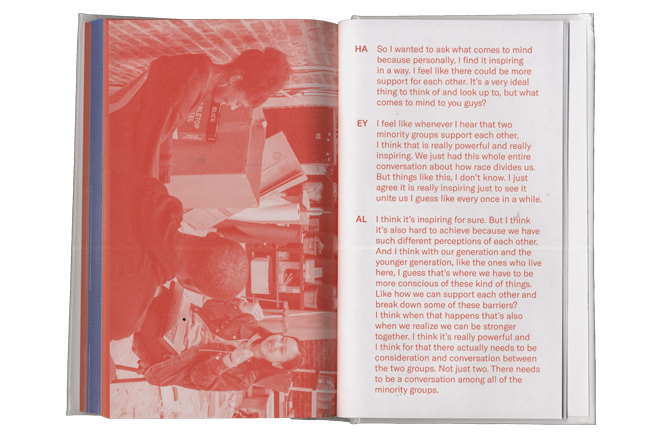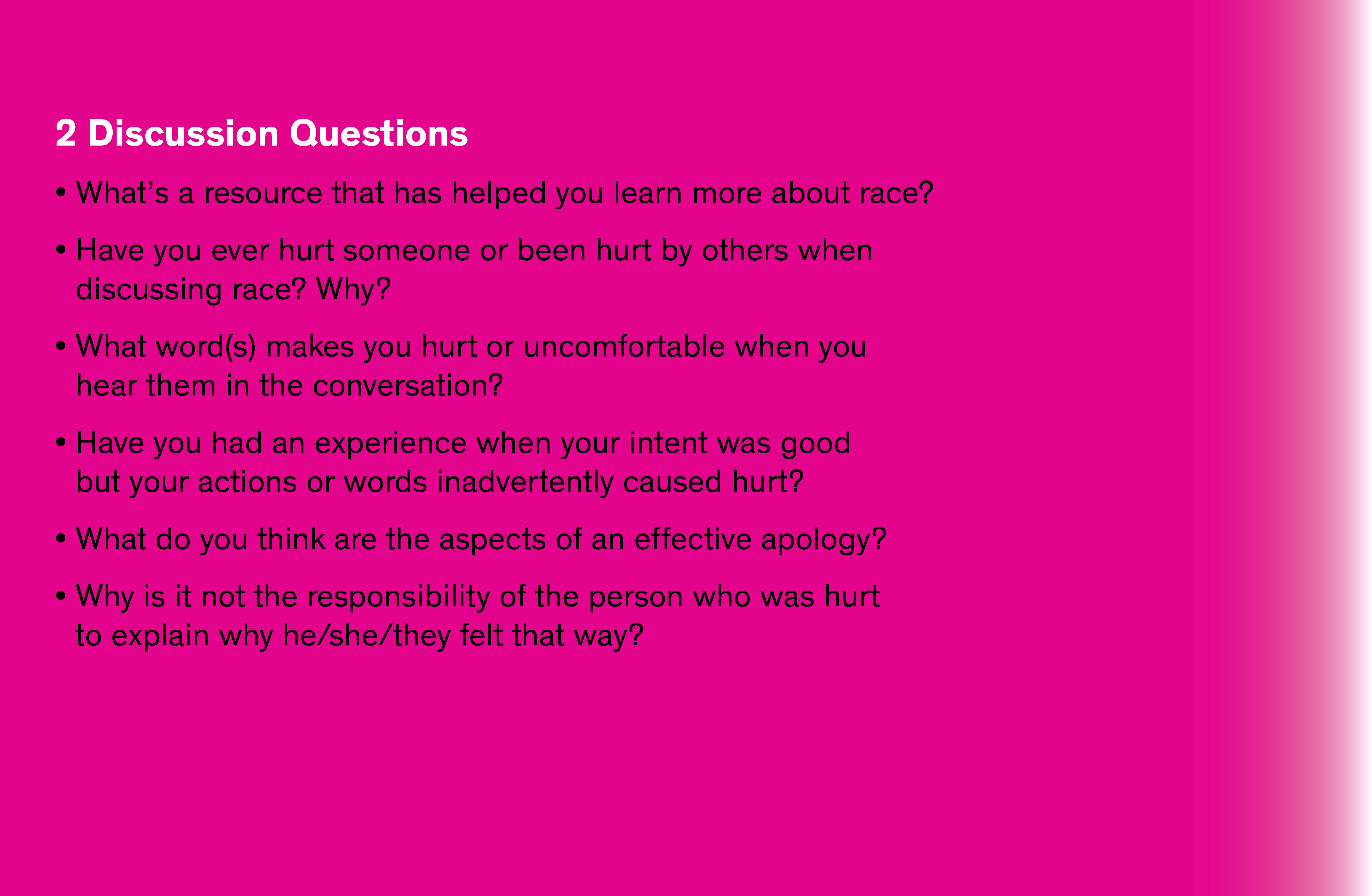2
Ways of Engaging with Race

“Recently, racism is played off as feigned ignorance encouraged by privilege. Antiracism begins with listening, learning, re-learning, decolonizing histories, decentering whiteness, and taking action.”
—Grace Kwon, Fiber ’20

Listen, learn
and understand
Talking about race requires attention to our similarities as well as our differences, good listening skills, and a willingness to be an ally. Sometimes, it is exciting to find someone that has the same self-identity or similar values as you. But when we meet someone who is from a different background or has a different perspective from us, how do we respond without hurting or misunderstanding each other?
Having these sensitive conversations takes courage and an openness to hearing and respecting others’ perspectives and lived experiences with racial injustice. When we notice the differences and feel confused or curious about them, being able to ask, listen and understand shows respect for each other, reduces misinterpretations, and simultaneously helps us learn from different perspectives.
Having these sensitive conversations takes courage and an openness to hearing and respecting others’ perspectives and lived experiences with racial injustice. When we notice the differences and feel confused or curious about them, being able to ask, listen and understand shows respect for each other, reduces misinterpretations, and simultaneously helps us learn from different perspectives.


Talk about it, practice it,
and be familiar with it.
When we discuss race, knowing appropriate words gives us the confidence to begin a cross-cultural conversation and reduces the possibility of hurting each other by inadvertently using offensive language. We encourage everyone to look up glossaries like this one¹ that provide anti-racist terms and explanations.
However, there are still times that we may say or do something unintentionally that has a harmful effect. If we suspect that we might have hurt someone or if someone tells us about our mistake, a genuine apology and a willingness to learn from mistakes will benefit the relationship and our own growth. A starting point for an apology may sound like this: “I’m sorry that I ____________(describe the mistake). Thank you for bringing it to my attention. I’ll try to be more aware and respectful in the future.” The person who brings the error to our attention should be received with gratitude. Cross-cultural conversations about any topic necessitate that both people are curious about the others’ perspectives and willing to consider cultural influences that might be present.
However, there are still times that we may say or do something unintentionally that has a harmful effect. If we suspect that we might have hurt someone or if someone tells us about our mistake, a genuine apology and a willingness to learn from mistakes will benefit the relationship and our own growth. A starting point for an apology may sound like this: “I’m sorry that I ____________(describe the mistake). Thank you for bringing it to my attention. I’ll try to be more aware and respectful in the future.” The person who brings the error to our attention should be received with gratitude. Cross-cultural conversations about any topic necessitate that both people are curious about the others’ perspectives and willing to consider cultural influences that might be present.
—Hannah Ahn, Graphic Design ’21

